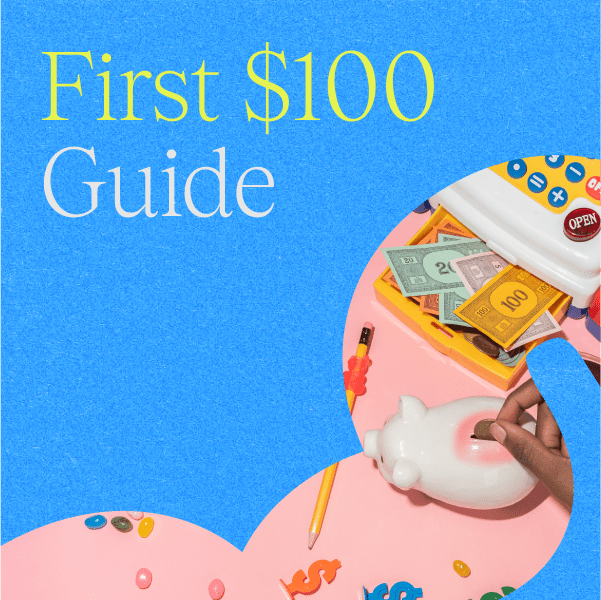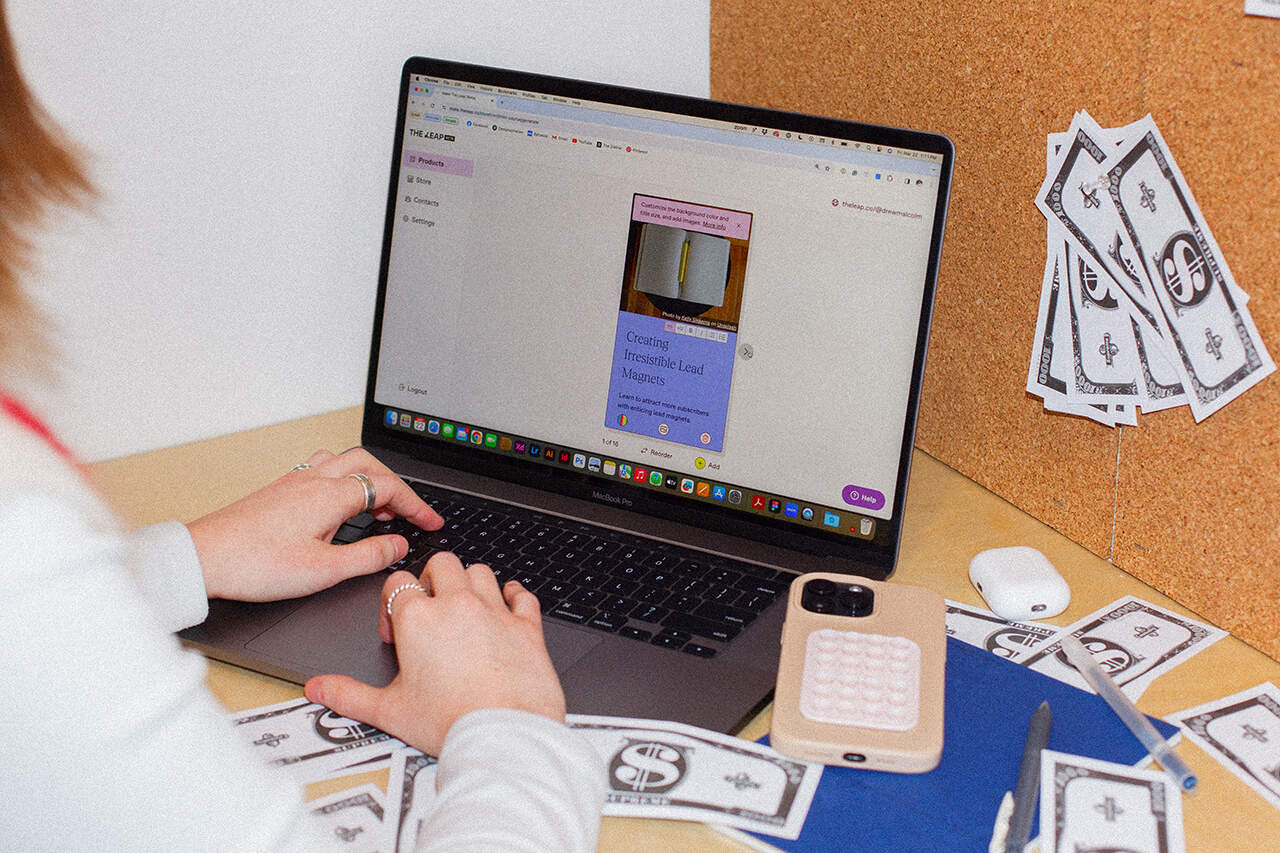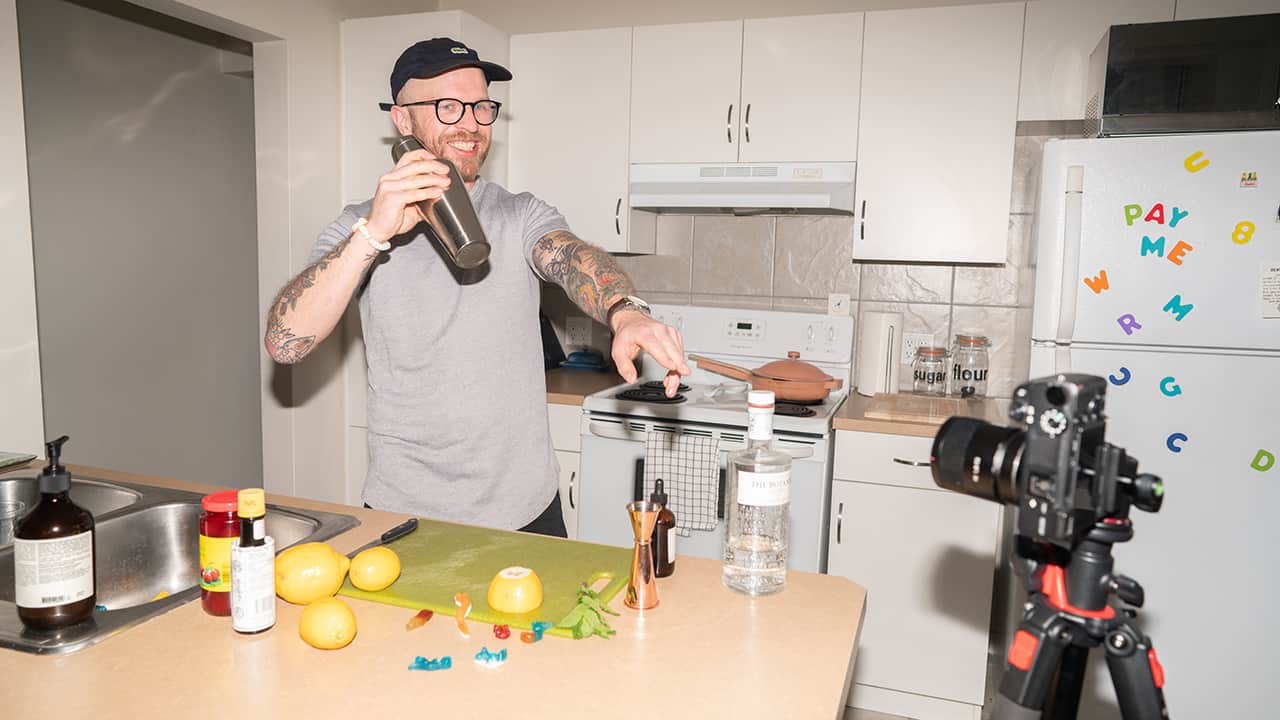Let’s face it: a lot of things have changed since the beginning of the COVID-19 pandemic. Top among them is how we learn. During lockdown, Zoom opened the doors to accessible e-learning for school children and university students alike. On the other hand, TikTok arose as a viable education tool for just about anyone wanting to learn, well, just about anything.
Enter the creator educator. As some of the highest-earning creators in the $250 billion creator economy, creator educators are teaching people around the world all kinds of things — and making bank in the process.
With the creator economy now rivaling higher education as an inexpensive, accessible learning alternative, there’s never been a better time to be a creator educator.
Intrigued? Read on to learn all about what a creator educator does, how much they make, and what it takes to become one.
What is a creator educator?

So, you might be wondering, “What is a creator educator, exactly?” Before we dive in, let’s zoom out to gain a bigger-picture understanding.
A creator is someone who produces content for online spaces. “Creator” is a catch-all term that can be broken down into two subgroups: creator entertainers and creator educators.
Been on TikTok recently? You’ve probably come across a ton of creator entertainers just with a cursory scroll through your FYP. Many of the most popular social media stars — like Addison Rae, Charli D’Amelio, and Khaby Lame — are creator entertainers. These creators are people who create entertaining digital content, often relying on their personality and sense of humor to keep viewers engaged and grow their following.
On the other hand, creator educators are people who create educational content, using their expertise to teach others. Like other types of creators, creator educators usually hone in one a single niche or area of expertise, which could be broad (like finance) or specific (like crocheting). These creators rely on their personal experience and knowledge of a particular subject matter to educate, engage, and, yes, entertain their audience. Because who says learning can’t be fun? In fact, the most successful creator educators are the ones who make learning feel exciting, fun, and achievable for their audience.
While creator educators do entertain their audience to get them engaged in the learning process, what separates them from creator entertainers is their expertise and the educational component of their content.
The key differences between creator educators and creator entertainers
| Creator educators | Creator entertainers | |
| Their content is… | Educational | Amusing or captivating |
| Their goal is to… | Teach and inspire | Entertain |
| They leverage their… | Knowledge and expertise | Personality or sense of humor |
What does a creator educator do?
Good question! Creator educators use their unique expertise and knowledge to teach others new information or help them improve their skills. But that’s just an overview. When you break it down, there are many tasks that creator educators perform and skills that they use in their work.
A day in the life of a creator educator might include:
- Recording and editing educational content for social media
- Producing learning materials and resources for their audience
- Building an online course
- Holding one-on-one coaching sessions
- Hosting live classes or webinars
- Managing brand partnerships (e.g. social media posts, podcast and newsletter sponsorships, guest blogs, etc.)
- Running a website or blog, including design, content, and maintenance
What a certain creator educator does — either on the daily or intermittently — depends on a few things, including their area of expertise, their audience’s needs, and their monetization strategy. For example, a creator educator specializing in fitness might spend most of their time hosting live workouts, whereas an educator in the realm of marketing might be creating educational content for their online courses or masterclasses.
How much money do creator educators make?

Interested in becoming a creator educator? We know what you’re going to ask next: how much do they make?
The truth is that there’s no single answer to that question. How much a creator educator stands to earn depends on a number of factors, but most importantly, the size of their following, their engagement rate, and their revenue streams. Of course, creator educators with larger, engaged audiences and multiple revenue streams stand to earn the most, with some raking in millions of dollars a year. However, creator educators with smaller audiences still stand to earn a living making educational content.
The most important thing to note is that creator educators actually stand to earn more money than creator entertainers. Why? While creator entertainers often have massive audiences, their followings are usually extremely diverse and not united by a single interest.
On the other hand, creator educators’ followers, by virtue of following them, are already devoted to a single area of expertise. This means that when creator educators promote a product or a service (their own or a brand’s), they can be pretty assured that their audience will have an interest in it. This means creator educators have a higher likelihood of converting more followers to customers, and that those with smaller followings stand to earn proportionally higher revenues compared to creator educators. How about that?
5 of the top-earning creator educators in 2023
As we mentioned, creator educators stand to earn a ton. And we’re not kidding. There are many creator educators who have built million-dollar empires and are earning seven-figure incomes — all based on educational content. From personal finance moguls to Excel experts, these are some of the top-earning creator educators right now.
Ali Abdaal
Formerly a doctor, Ali Abdaal used to create educational content to help med school students ace their exams and supercharge their studies. Today, he’s helping people of all kinds boost their productivity by sharing evidence-based strategies, literature, and tools. Want to find your passion, build your dream career, or just get more done? Ali and his inspiring content have got you covered.
Altogether, Ali’s revenue streams earned him $4.6 million in 2022. They include:
- YouTube AdSense
- Affiliate programs
- Brand partnerships (YouTube, Instagram, and TikTok)
- Podcast (AdSense and brand sponsorships)
- Email newsletter (Brand sponsorships)
- Merch
- Digital products
- Online courses
Tori Dunlap
As a creator, Tori Dunlap’s mission is simple: to help women make bank. After saving $100,000 by the age of 25, Tori quit her corporate job and began sharing her financial tips with other women online. Her goal? Giving them the financial freedom they need to smash the patriarchy and live their dreams. We love to see it!
Tori’s combined revenue streams made her $4 million in 2022. They include:
- Podcast
- Published book
- Online courses
- Digital products
- Brand partnerships (TikTok and Instagram)
Kat Norton (aka Miss Excel)
Who hasn’t pretended they know how to use Excel to land a job interview? Kat Norton — also known as Miss Excel — is here to put an end to that. Through her TikTok videos and online courses, Kat teaches others how to master the notorious Microsoft app in addition to the entire Microsoft suite. After taking Kat’s best-selling Excelerator course, you’ll never have to lie on your résumé ever again.
Together, Kat’s revenue streams have made her over $2 million as of 2023. They include:
- Online courses
- Brand partnerships (TikTok and Instagram)
Simran Kaur
Simran Kaur is one of the most prominent voices in women’s personal finance today — literally. The creator-slash-digital media mogul co-hosts the world’s number one investing podcast for women under the umbrella of her money media company, Girls That Invest.
With Girls That Invest, which also encompasses an investing masterclass and a best-selling book, Simran is giving women around the world the financial education they deserve, so they can live their lives on their own terms.
According to Simran, her investing masterclass alone “brings in a little over $1 million annually.”
Jay Clouse
Jay Clouse is the mind behind the platform Creator Science and its namesake podcast. Like a well-trained chemist, Jay’s goal is to distill the art of being a creator down to science, getting down to the nitty-gritty behind the game’s ins and outs and offering sound, evidence-backed advice for newbies and veterans. Trying to nail down your niche or max out your income? Jay is your guy.
Altogether, Jay’s revenue streams generated $338,000 in 2022. They include:
- Memberships
- Brand partnerships
- Coaching
- Consulting
- Royalties
- Digital Products
- Affiliates
- Fan donations
The essential traits of a creator educator
So, what makes a good creator educator? Besides having a passion for sharing your knowledge or expertise with others, here are some important traits that creator educators should cultivate in order to thrive and stand out.
People skills

People skills are crucial for any creator educator. Why? Because most of your time will be spent communicating directly with your audience, whether you’re hosting live classes, holding one-on-one coaching sessions, giving feedback on course work, or responding to comments on social media.
So, what are people skills, exactly? “People skills” (also known as “interpersonal skills”) is a catch-all term that refers to the skills you use to communicate and interact with other people effectively. These include:
- Patience
- Empathy
- Communication skills
- Active listening skills
- Flexibility
- Open-mindedness
- A sense of humor
- Honesty
- Leadership skills
- Problem-solving skills
- The ability to support and motivate others
Having excellent people skills is especially important in educational spaces, because you’re dealing with people who are learning something new for the first time. In other words, errors will happen, information might need to be repeated, and frustration might arise. But don’t sweat it. If your people skills are up to par, you’ve totally got this!
Creativity

The creator economy is booming, with tons of creator educators occupying almost every niche imaginable. Considering the competition, you’ll need to be more than a little creative to really rake it in. That means finding your own voice and creating content that’s unique within your niche.
Successful creator educators need to be able to come up with new and exciting ways to present age-old information. So, if you’re also an expert at thinking outside the box, this might be perfect for you.
Openness to learning
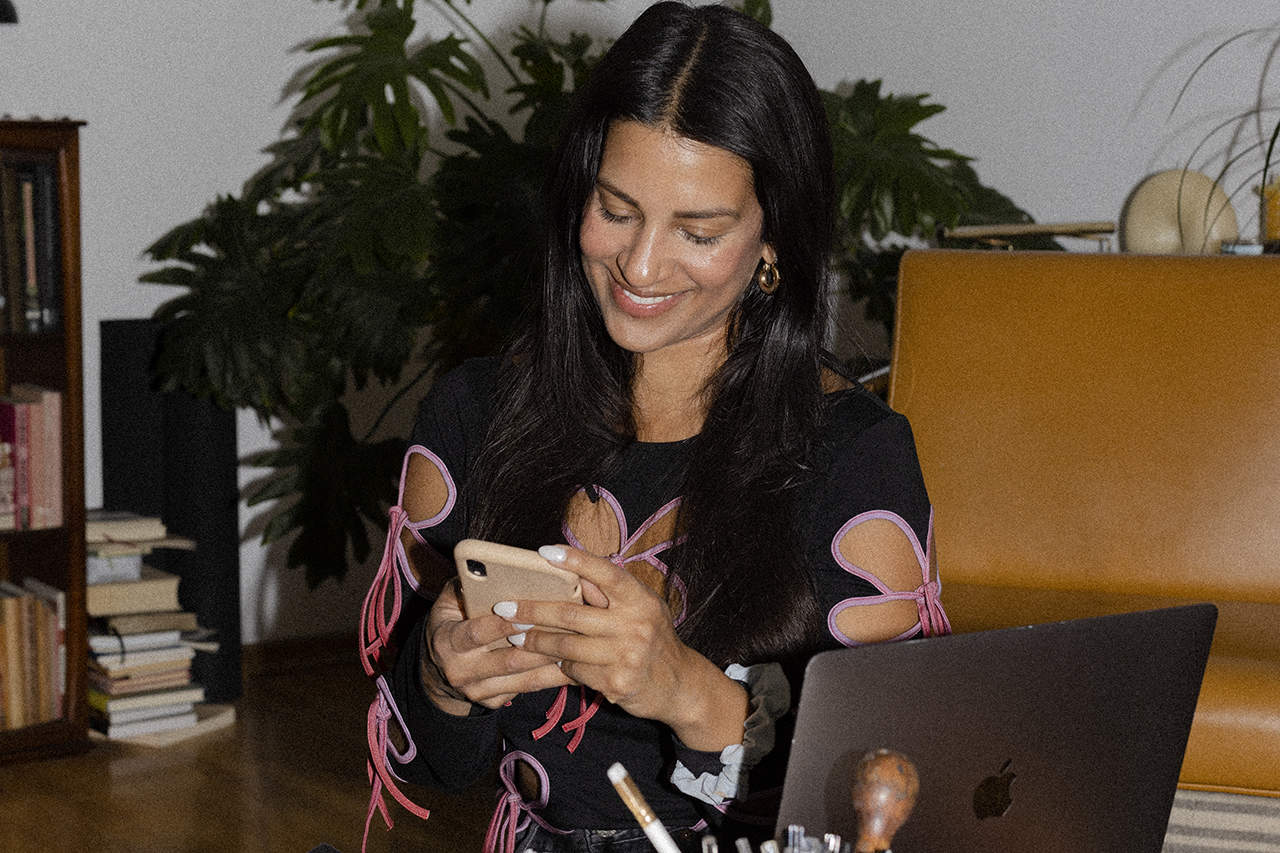
Just because you’re an expert doesn’t mean you need to stop learning. Approaching education — and your role as an educator — with an open mind is crucial for the success of any creator educator.
Across nearly all areas of expertise, new information, trends, and perspectives arise almost every day. It’s important to keep afloat of the latest within your niche to stay relevant, and to give your audience the most accurate, up-to-date information.
And remember: you can always learn from your audience. Pay attention to your audience’s discussions, listen closely to their questions, their feedback, and their opinions on what they’re learning. Fresh, new perspectives can often lead to brand new innovations within your area of expertise — and that’s something that can make your content exciting and unique.
How to become a creator educator
It takes time and dedication to make a name for yourself as a creator educator, but if you have the passion and drive to share your knowledge with others, you’ll find a way to succeed. Here’s a simple guide to help you get started.
Step 1: Define your niche
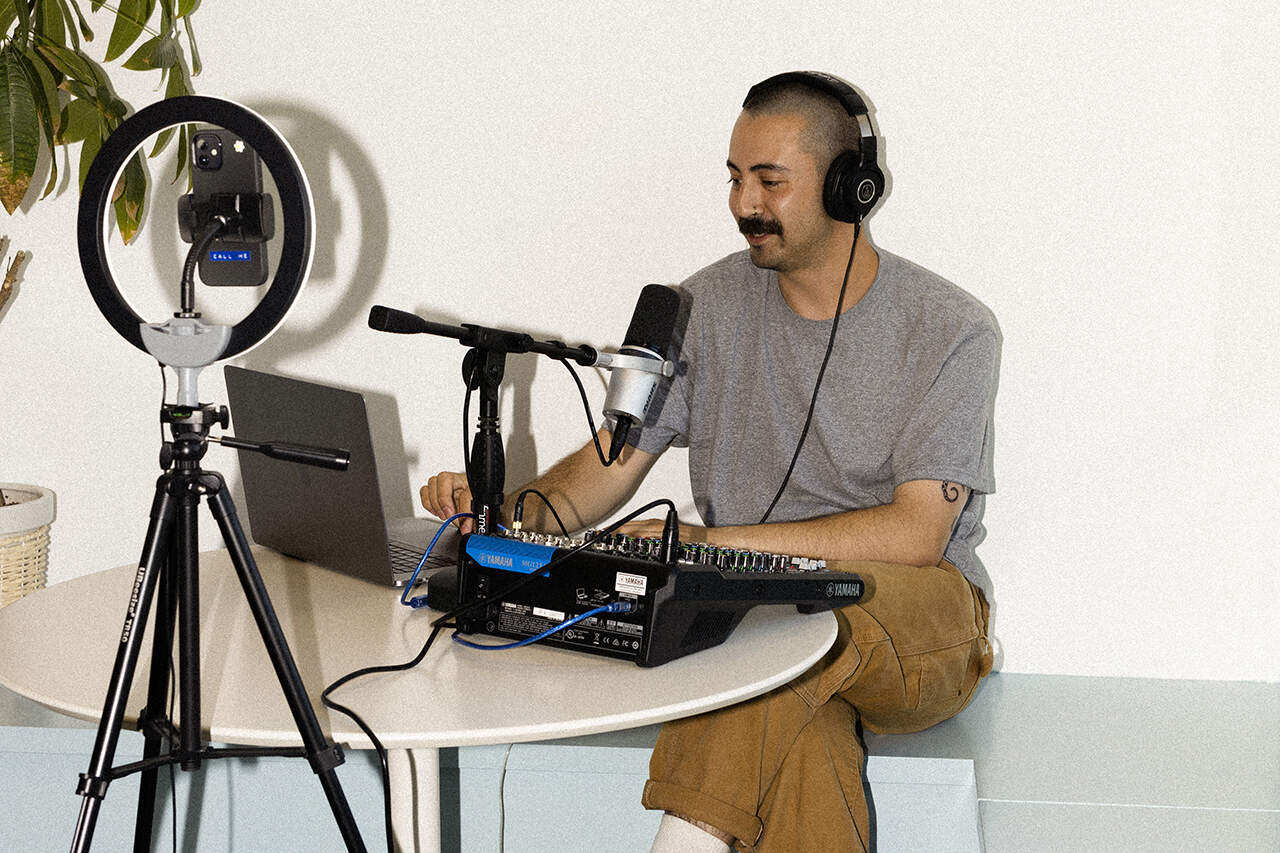
Creator educators differentiate themselves from other kinds of content creators with one thing: expertise. To begin earning money teaching others online, you’ll need to figure out what you’d like to teach them about!
For a creator educator, defining your niche usually comes down to figuring out your unique area of expertise. Ask yourself a few questions. For example, “Is there a topic I know a lot about?” Or, “What unique skills do I possess?” The answers to these are all great places to start. And they can be anything! From deep knowledge about the history of Europe to excellent needlepoint skills or a mastery of Adobe Suite.
Once you’ve defined your niche, you’ll find it’s easier to begin amassing a large and devoted following, which is key to monetizing as a creator educator.
Step 2: Plan your content

A little planning goes a long way. Whether you’re creating a course draft or your weekly round of TikTok videos, it helps you map out exactly why you’ll be teaching and how you’ll be teaching it.
Having an overview of your educational content ensures you’re delivering it in a way that makes it easy for your audience to digest, and steadily build up their skillset or knowledge base over time.
Also, having foresight into your lesson or content topics gives you time to brainstorm the most effective way to convey that knowledge to your audience.
Step 3: Choose your platform(s)
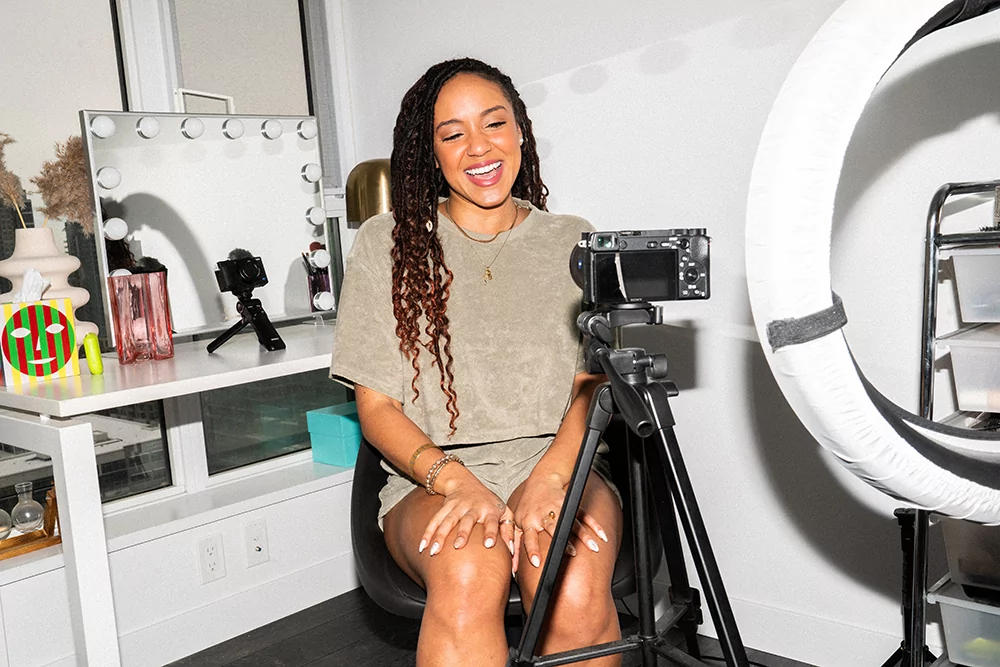
Yes, platforms matter! The platform (or platforms) you choose should be tailored to your specific niche and how you’d like to communicate with your audience.
For example, creator educators who want to deep dive or offer explainers for dense topics (think: personal finance, history, etc.) will want to opt for platforms that cater to longer-form content, like YouTube, or might want to start their own podcast or newsletter. On the other hand, creator educators who can offer tips, tricks, and information to their audience in bite-sized pieces will want to opt for platforms like TikTok or Instagram.
Lots of creator educators (and their audiences) benefit from a combination of different platforms in order to cover all the nuances of their expertise and teach their audience most effectively. For example, a fitness instructor might want to demonstrate single-move exercises in short videos via TikTok or Instagram Reels, then move over to YouTube for more longer-form workouts.
Step 4: Create high-quality content

Bottom line: as a creator educator, you need to always be creating high-quality content. Remember, your audience is following you because they want to learn something new, and they’re relying on you to deliver!
To create the highest-quality content you can — from online courses to short-form videos — spend time honing your knowledge with plenty of research and keep up-to-date on the latest in your niche. And remember to add your own spin to your content. For example, you might want to turn your history lesson into a one-person sketch rather than just a video essay. This is what keeps audiences engaged and coming back for more.
Step 5: Create and market your digital products

One of the best ways to monetize as a creator educator is to create and sell your own digital products. These can range from ebooks that compile useful information, to downloadable templates that help save someone’s time, to online courses packed with juicy knowledge, tutorials, and quizzes.
To make money from your digital products, you need to let others know they exist! That’s where marketing comes in. Be sure to promote your digital products through your content, whether it be on your social media channels, your blog, or in your email marketing. Direct your audience to your online storefront to purchase your digital products.
And remember: your customers are your best salespeople. Ask those who’ve purchased your digital products to provide you with testimonials that you can use as social proof in future marketing.
Want to create, sell, and promote your digital products all from one platform — for free? Look no further than our all-in-one online storefront builder and AI-powered authoring tool. Try The Leap for free now.
Step 6: Grow your community

Making bank as a creator educator is all about nurturing your community. That’s because engaged, devoted followers are the ones most likely to become customers (and return customers, at that!)
Take the time to regularly interact with your audience, whether that’s hosting live Q&A sessions, running contests and giveaways, or simply replying to their comments and messages. Taking one step further, you can even use an online community platform to create members-only community spaces — like chat rooms, message boards, and more, allowing members of your audience to discuss different topics or even educate each other.
And that’s what it takes to become a creator educator!
Easy, right? We’re just kidding. Becoming a creator educator does take hard work and perseverance. But we know you’re up for the task. You are an expert, after all!
Early in your creator journey and not sure how to start earning? Check out our FREE guide to making your first $100 online.
FAQ
Can you make money online sharing your knowledge?
Yes, you can absolutely make money by sharing your expertise and knowledge online. There are many creator educators making anywhere from hundreds of dollars a month to millions of dollars a year teaching others online.
Want to start monetizing your knowledge quickly and easily? Look no further than The Leap, an all-in-one online storefront and digital product builder that allows creators to build and sell digital products all on one platform. The platform’s easy-to-use, AI-powered authoring tool allows creators to transform their knowledge and expertise into digital products in virtually no time and with little effort. The best part? It’s all free.
Interested? Try The Leap for free today.
How can you monetize your expertise online?
There are many ways to monetize your expertise online, including creating online courses, ebooks, newsletters, and podcasts, hosting live classes and webinars, and partnering with brands to partake in live speaking events or guest spots on blogs and podcasts.
Follow The Leap on TikTok, Instagram, and YouTube for more audience growth tips. We also make a newsletter.

